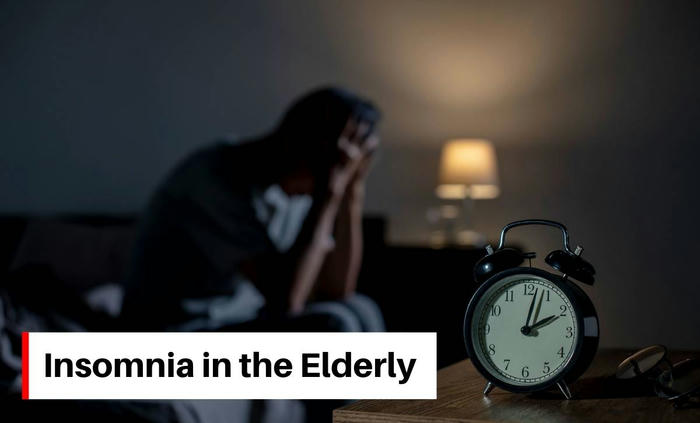Effective Strategies for Treating Insomnia in the Elderly
Insomnia is a prevalent issue among the elderly, significantly impacting their quality of life and overall health. This article explores evidence-based strategies for treating insomnia, focusing on lifestyle changes, medical interventions, and holistic approaches tailored for older adults. By incorporating specific data and case studies, we aim to provide actionable insights for improving sleep in this demographic.
Understanding Insomnia in the Elderly
Insomnia is characterized by difficulty falling asleep, staying asleep, or waking up too early. For the elderly, this condition is particularly challenging due to age-related changes in sleep patterns, underlying health conditions, and medication side effects. According to the National Sleep Foundation, nearly 50% of adults over 65 report symptoms of insomnia, making it a critical issue to address.

Causes of Insomnia in the Elderly
Age-Related Sleep Changes
As people age, their sleep cycles shift, often resulting in lighter and more fragmented sleep. The production of melatonin, a hormone that regulates sleep, decreases with age, further exacerbating the problem.
Medical Conditions
Chronic pain, arthritis, heart disease, and respiratory issues can disrupt sleep. For example, a study published in the Journal of Gerontology found that 75% of elderly individuals with chronic pain reported sleep disturbances.
Medications
Certain medications, such as those for hypertension or depression, may interfere with sleep. Beta-blockers, commonly prescribed for high blood pressure, are known to reduce melatonin levels.
Lifestyle Factors
Lack of physical activity, irregular sleep schedules, and excessive caffeine or alcohol consumption can contribute to insomnia. A 2024 study in Sleep Medicine Reviews highlighted that 30% of elderly individuals who consumed caffeine after 3 PM experienced difficulty falling asleep.
Lifestyle Changes to Improve Sleep
Establish a Consistent Sleep Routine
Going to bed and waking up at the same time every day helps regulate the body's internal clock. This consistency can improve sleep quality over time. A 2023 study in the Journal of Sleep Research found that maintaining a regular sleep schedule reduced insomnia symptoms by 40% in elderly participants.
Create a Sleep-Friendly Environment
Keep the bedroom dark, quiet, and cool.
Use comfortable bedding and pillows.
Remove electronic devices that emit blue light, such as TVs and smartphones.
Research from Harvard Medical School shows that exposure to blue light before bed can suppress melatonin production by up to 50%, making it harder to fall asleep.

Limit Stimulants and Alcohol
Avoid caffeine and nicotine in the afternoon and evening, as they can interfere with sleep. While alcohol may initially make you feel drowsy, it disrupts sleep later in the night. A 2024 study in the Journal of Clinical Sleep Medicine found that elderly individuals who consumed alcohol before bed experienced 20% more nighttime awakenings.
Engage in Regular Physical Activity
Moderate exercise, such as walking or yoga, can promote better sleep. However, avoid vigorous activity close to bedtime, as it may have the opposite effect. A meta-analysis published in Sleep Medicine Reviews in 2023 revealed that elderly individuals who engaged in regular physical activity experienced a 25% improvement in sleep quality.
Medical Interventions for Insomnia
Cognitive Behavioral Therapy for Insomnia (CBT-I)
CBT-I is a structured program that helps individuals change negative thoughts and behaviors related to sleep. It is considered one of the most effective treatments for chronic insomnia. A 2022 study in JAMA Internal Medicine found that 70% of elderly participants who completed CBT-I reported significant improvements in sleep duration and quality.
Medications
In some cases, doctors may prescribe sleep aids. However, these should be used cautiously in the elderly due to the risk of side effects and dependency. A 2023 report by the American Geriatrics Society highlighted that non-benzodiazepine sleep medications, such as zolpidem, should be used at the lowest effective dose for the shortest duration.

Addressing Underlying Health Issues
Treating medical conditions that contribute to insomnia, such as sleep apnea or restless legs syndrome, can significantly improve sleep quality. A 2024 study in the Journal of Clinical Sleep Medicine found that treating sleep apnea with CPAP therapy reduced insomnia symptoms by 60% in elderly patients.
Holistic Approaches to Sleep Improvement
Relaxation Techniques
Practices like deep breathing, progressive muscle relaxation, and meditation can help calm the mind and prepare the body for sleep. A 2023 study in the Journal of Alternative and Complementary Medicine found that elderly individuals who practiced mindfulness meditation experienced a 30% reduction in insomnia severity.
Herbal Remedies
Some herbal teas, such as chamomile or valerian root, are known for their calming properties. However, consult a healthcare provider before using herbal remedies, especially if you are taking other medications. A 2022 review in Phytotherapy Research found that chamomile tea improved sleep quality in 40% of elderly participants.
Acupuncture
Acupuncture has been shown to improve sleep quality in some individuals by promoting relaxation and balancing the body's energy flow. A 2023 study in the Journal of Acupuncture and Meridian Studies found that elderly patients who received acupuncture twice a week for six weeks reported a 35% improvement in sleep duration.
The Role of Diet in Sleep Health
Avoid Heavy Meals Before Bed
Eating large or spicy meals close to bedtime can cause discomfort and disrupt sleep. Opt for light snacks if needed. A 2024 study in the Journal of Nutrition, Health & Aging found that elderly individuals who avoided heavy meals before bed experienced 25% fewer nighttime awakenings.
Incorporate Sleep-Promoting Foods
Foods rich in tryptophan, magnesium, and melatonin, such as turkey, almonds, and cherries, can support better sleep. A 2023 study in Nutrients found that elderly individuals who consumed tart cherry juice daily experienced a 15% increase in sleep duration.
Conclusion
Insomnia is a treatable condition, and the elderly can benefit from a combination of lifestyle changes, medical interventions, and holistic approaches. By addressing the root causes of sleep disturbances and adopting healthy sleep habits, older adults can improve their sleep quality and overall well-being. Always consult a healthcare provider for personalized advice and treatment options. With the right strategies, restful sleep is within reach for the elderly population.
